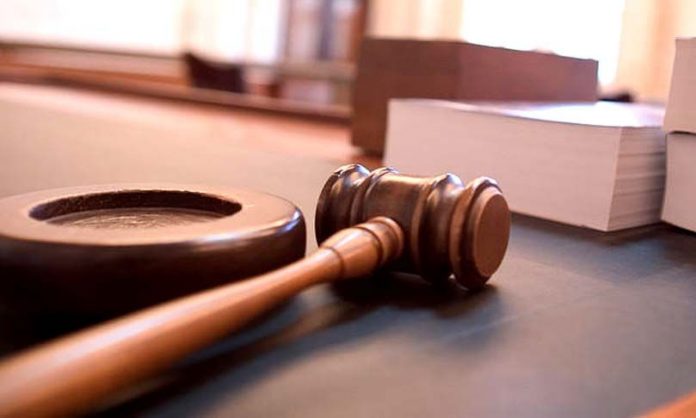This article has been written by Raslin Saluja from KIIT School of Law, Bhubaneswar. The author talks about the existing laws while analyzing the trend in their execution in comparison to other jurisdictions.
Table of Contents
Introduction
The roots of the contempt law can be traced from Ancient Indian history. In the earlier times, the King was the supreme, and people were punished for criticizing their ruler. The King also used to delegate a lot of responsibility to the judges and so even they held a similar status and treated with dignity like that of the King. Further, even in the British Era, they understood the importance of maintaining the dignity of the Court and the judges presiding over it. And so today in modern times, contempt is understood as being disrespectful towards a court of law belittling its authority and defying its dignity in the form of an opposing behaviour.
Present laws dealing with contempt
It all goes back to the year 1968 when a Bill was given effect to the recommendation of the committee formed under the then Additional Solicitor General of India, Shri S.H.Sanyal, and published for the first time for the public in the Gazette of India. The Contempt of Courts Act, 1971, has been enacted to define and limit the powers of certain courts to regulate their procedure in relation thereto. The intention which paved its way was to keep justice away from being despised and preserve its purity. To send across a powerful message that anyone who tries to compromise the dignity of the court and interferes with the administration of justice must be strictly dealt with.
Even the Indian Constitution incorporates contempt under Articles 129 and 142, which confers an inherent power on the Supreme Court being the court of record with special jurisdiction vested on it beyond any control or limitation. A similar provision is given under Article 215 for the High Courts and empowers them to hold proceedings of contempt against its own courts and subordinate courts.
Under Indian law, the term contempt means a voluntary wilful act of disobedience towards the orders of the court. To do what is forbidden or fail to do what is required to be done. The act has to be adjudged based on the facts of each case. The Contempt of Courts Act deals with it under two categories: civil contempt and criminal contempt.
Civil contempt is invoked when showing disregard or disobeying any judgment, decree, direction, order, writ, or other processes of a court wilfully or one who commits a wilful breach of an undertaking given to the court as under Section 2(b). In simple terms, it means flouting the instructions of the court intentionally to disregard its authority. This rather has a transient effect on the administration of justice.
Whereas criminal contempt could potentially cause long-lasting damage when compared to the former. It is defined under Section 2(c) as the publication of any matter or doing any other act whatsoever which tends to or scandalizes/lowers the authority of the court., prejudices or interferes or tends to interfere with due course of a judicial proceeding tends to or interferes/obstructs the administration of justice in any other manner.
Thus it covers a broad aspect of activities that may affect the public interest in the institution of justice. This also involves hostile criticism of judges and the judiciary. The Court must protect itself against insult and injury so much so as these acts have the potential to divert the public’s confidence and faith from the judicial process of justice administration.
Punishment and exceptions
The Act defines what act or conduct would not amount to contempt. Section 3 states that any innocent publication in the form of words, libel, or slander and distribution of matter would not be considered contempt if, by reasons, the accused had no grounds to believe that the proceeding was pending. The exception is also granted in cases of distribution, where the accused had no reasonable grounds to believe that matter mentioned under Section 3(1) was the part of such distributed content.
Further publication of a fair and completely accurate report of judicial proceeding does not amount to contempt subject to conditions under Section 7. Contempt includes publication which is contrary to the provisions of enactment, publications that are expressly prohibited by the Court on grounds of public policy, where the Court itself sits in chambers or cameras for reasons of public order or state security or when secrecy has to be maintained regarding the information in the proceedings.
A fair constructive criticism of judicial action in the form of a decided case is also exempted as long as it does not instigate a relatively illiterate audience against the judiciary. Any statement made in good faith against a presiding officer of any subordinate court is not contemptible under Section 6 of the Act.
Section 12 deals with the punishment in cases of contempt of court, simple imprisonment for a term which may extend to six months, or with a fine which may extend to two thousand rupees or both, but the accused may be discharged if provides a satisfactory apology to the Court. In cases of civil contempt where the Court considers that fine does not suffice and imprisonment seems necessary, it may direct a six months imprisonment in a civil prison. If the accused is a company then the punishment would be imposed on every person who in the time of contempt was in charge of the conduct of business. Provided they will not be held liable if they can prove that contempt took place without their knowledge.
Defences available
- If the order against which has been disregarded is itself vague, incomplete, unclear, and ambiguous.
- If such conduct has been done in good faith or without any knowledge of the order.
- If such an act was not willful/intentional/voluntary. Here the accused needs to provide a reasonable explanation for noncompliance.
- Where the order renders more than one interpretation based on reasonable grounds. Thus it should involve a valid question of interpretation.
- Where the compliance of the order is in itself not possible and where it has been passed without jurisdiction.
- Other defences against criminal contempt have been dealt with above under exceptions in Sections 3 to 7.
- Defences that are allowed in a contempt proceeding included under Section 13(2) of the Act, that contempt will be allowed if an act is done as justification of truth in a bonafide manner and the public interest.
- Lack of mens rea is not a valid defence.
- The Courts have also observed that negligence and carelessness is no excuse for contempt in a lot of cases. For disobedience of a clear and complete order passed by a competent Court which is not capable of more than one interpretation, would amount to contempt of Court. Thus, misunderstanding our understanding of a court order would not be permissible as a valid defence.
Trends followed based on previous case laws
In the case of Everest Coal Company Ltd v. the State of Bihar (1977), the Act was challenged as violating the orders of the court and unauthorisedly dealing with the property kept under the court’s possession and protection. It was stated that either of the two if proved would amount to contempt and any person without the permission of the court cannot deal with the custodia legis disturbing the functioning of the Court and causing contempt of its authority.
But in the matter of Re Vijay Kurle (2020), three of the accused were convicted for settling outrageous charges against Justice RF Nariman and Justice Vineet Saran. The court observed that to comment or criticize the court’s judgment, people should also first have the knowledge to challenge the integrity and authority of a judge.
In the case of R.N Dey and others v. Bhagya bati Pramanik and others (2000), it was stated that the provision of contempt cannot be misused or used excessively. It cannot be used for the execution of a decree/order for which an alternative remedy is provided. The discretion of the court must be carefully exercised in cases to protect the dignity and majesty of the law.
Contradicting judgments in determining the contempt in speech
In the case of Brahma Prakash Sharma v. State of Uttar Pradesh (1953), the Supreme Court held that statements made against the judges of the court in their individual capacity would not amount to contempt proceedings. In the present case, the District Bar association in the resolution passed against two judicial officers called them incompetent in their work. And it was said that it is not the aim of the contempt provision to protect judges from criticism in their individual capacity. However, the moot question remains whether the conduct of judges is subject to fair and reasonable criticism and is it merely defamation or actual contempt.
But due to the conflict in the case of Namboodiripad (1970), the Chief Minister of Kerala after making a derogatory remark against judges was convicted for contempt of court. The court also observed that freedom of speech even though always prevailing should be within its boundaries as to not manifest substantial contempt.
Further, the case P.N Duda v. P Shiv Shankar (1988) supplanted the above-mentioned case and the Court took a different path. The speech that was in question in its true element was observed to not interfere with the administration of justice even though the language could have been more gentle. And thus no proceedings were initiated.
Another landmark ruling in the subject is the case of S.Mulgaonkar v. Unknown (1978), where the editor of the Indian express refused to apologize and take down his article on contentious precedents during the time of emergency. The irony lies in the fact that the bench that had initiated the contempt proceedings did not render the petitioner guilty.
A Calcutta High Court judgment in 2012 absolved the West Bengal CM of the contempt proceedings wherein she was accused of making a controversial speech in regard to Judiciary. Lastly, in the Arundhati Roy (2002) case, where the top court itself initiated the contempt proceedings for making a declaration in an affidavit of another contempt related case, held her guilty of criminal contempt even though the proceedings had been dropped against her.
Then in 2016, in the case of M.V.Jayarajan, a politician from the Communist Party of India was convicted for a critical speech in the Kerala High Court. The top court also took notice of his refusal to apologize and found an intentional obstruction in the administration of justice.
Recent cases
Moving towards more recent judgments, they rather show an unprecedented turn as in the case against Prashant Bhushan (2020). No one can be the judge of their own cause, one of the principles of natural justice was not paid heed to. He was found guilty of scandalizing the court under criminal contempt but being a renowned lawyer received immense support from hundreds of people. Despite his refusal to apologize, the Court’s leniency granted him the time of four days to reconsider his position and ultimately punished him with a fine of 1 Rupee.
It was noted that over the three and a half months following Bhushan’s conviction, the Attorney General received requests for consent to initiate contempt of court proceedings against many other people of various professions. From the journalist Rajdeep Sardesai, actor Swara Bhasker, politician and former Chief Minister Digvijay Singh, Andhra Pradesh Chief Minister, YS Jagan Mohan Reddy, stand-up comedian Kunal Kamra, comic illustrator Rachita Taneja, right-wing activist Shefali Vaidya to Bhushan, for the second time.
In another case wherein a stand-up comedian, Kunal Kamra (2021) was issued a contempt notice for making some tweets online against the top court. The attorney general KK Venugopal while claiming his tweets were in bad taste, said it was time for people to understand that they cannot attack the top court brazenly without being punished. In his legal submission, while refusing to apologize, Kamra went on to say that the court cannot be defied of its integrity because of what the public says but because of its own action. Even though the case remains pending, it will be interesting to note whether the contempt law gets comedians too in its garb.
Yet another interesting case is of Rachita Taneja (2021), a cartoonist who was also accused of objectionable tweets with cartoons attached against the court. Where again the attorney general was of the view that the tweet was intended to shake the public’s confidence in the judiciary. However, when the ex CJI Ranjan Gogoi said in an interview about the judiciary being ramshackle and that to get a timely verdict is a far-fetched possibility, the Attorney General had refused to grant sanction to initiate proceedings. He further opined that the speech was made with good intention for the benefit of the institution and does not scandalize the court. Thus clearly, one can see a pattern here. One needs to question in which scenario is the public likely to lose its confidence from the Judiciary- from a statement given by ex CJI- an insider or just random cartoonists/comedians who are a common human being witnessing the court’s functioning from afar very much like us.
Need
It has often been highlighted that there is no fixed standard or procedure to determine what crosses the lines to be termed as contempt despite the provisions of the Act. In the various cases mentioned earlier, the court has seemed to take contradictory stands thereby negating the value of such judgments. While it is understandable that there can be no holding back in order to prevent the court from becoming the subject of public mockery, it is also important to maintain the rights of people in exercising their freedom. There is a very thin line between making a casual remark and criticizing to lower its authority. And then how does one determine the extent of damage that would be caused/ has been caused by certain conduct of the people
To continue to deal with situations on a case-to-case basis would be unfair to those who are not kept on similar footing with others. It will also further add to the issue of lack of uniformity despite the defining provisions. The flexibility in interpreting the provisions places too much power in the hands of the court to include any and everyone under its contempt jurisdiction. Thus, in order to bring clarity, all of this calls for the Court to either give away with the proceedings altogether or come up with a specific and certain contempt law in India.
A brief comparison with other jurisdictions
The comparison with other jurisdictions is as follows:
England
Contempt law in England has been abolished since 2013 after the last proceedings in 1930. Lord Denning in a 1969 matter stated that even though the courts have the contempt jurisdiction, they shall never put it to use. That judges do have a certain level of personal interest in these matters and one cannot be a judge in their own cause. This leaves us an interesting turning point since our law is derived from common law.
USA
Justice Hugo Black opined in Bridges’ case in 1941 that the opinion of people could not be suppressed under the veil of contempt of court. Further that the dignity of the Court will not be shown respect if the public is restricted from having free discussions about it.
Even the Canadian courts allow criticism as long as there is any imminent danger to the justice administration. In the 1987 case of Koptyo, it was stated that courts are not fragile flowers to wither away with such controversies.
Australia
It also follows in similar lines of not silencing criticism under the pretext of contempt. Justice Hope in the case of Munday, 1972 opined that there is no reasonable ground as to why courts should not be subjected to criticism like that of any other public institution. He observed that if their conduct justifies respect and confidence then they do not need any protection or special rules.
Conclusion
Judiciary is one of the major pillars of the Indian democracy and it is expected to remain unwavering to criticism that comes its way. To say, it remains an undisputed fact that the best way to preserve its authority and dignity would be in the form of upholding quality decision-making and precedents and maintaining fairness and objectivity in their approach.
References
- https://www.theleaflet.in/contempt-dignity-and-fair-criticism-what-do-they-mean-to-courts/
- https://www.barandbench.com/columns/litigation-columns/contempt-of-court-supreme-court-prashant-bhushan-attorney-general-consent
LawSikho has created a telegram group for exchanging legal knowledge, referrals and various opportunities. You can click on this link and join:
 Serato DJ Crack 2025Serato DJ PRO Crack
Serato DJ Crack 2025Serato DJ PRO Crack











 Allow notifications
Allow notifications


